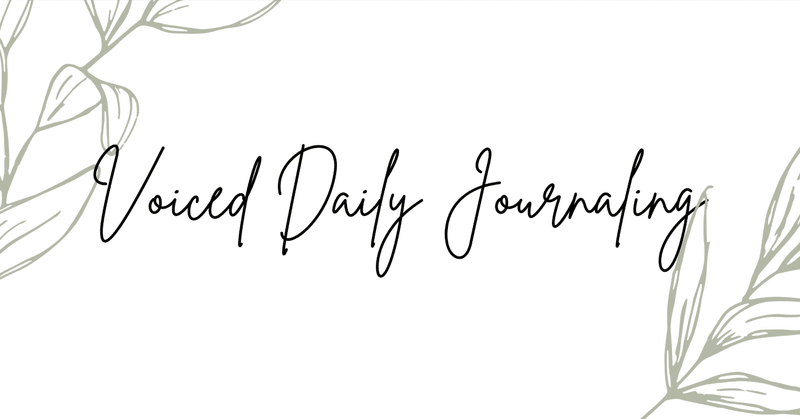
#153 【英語日記:英語学習】オーストラリア英語やスラングなどについて思うことを話してみる回
みなさまこんにちは。このページへお越しくださりありがとうございます。
オーストラリア ブリスベン在住のHarukaです。
英語・日本語交互に話すBlogのようなポッドキャストを配信しています。
Noteではそのポッドキャストの文字起こしを記録として残しています。
最新話へのリンクはこちら↓
Apple派のあなたはこちら
Spotify / ウェブ派のあなたはこちら
今日の内容
今日はオーストラリア英語の代表例と、そこから派生して、スラングなどをSNSで見かけた時に思うことをお話ししています。
ご興味ある方いらっしゃいましたらお付き合いください。
今日の文字起こし
Hello everyone, welcome to today’s episode of my podcast!
This podcast is about my daily life in Brisbane, Australia as a native Japanese-speaking learner of English.
This podcast is bilingual, using both English and Japanese.
皆様こんにちは 今日も聞いてくださってありがとうございます。
この Podcast はオーストラリア ブリスベンに住んでいる私がオーストラリアでの日常生活の中で思ったこと・感じたことを英語日本を交互に使って話す声のブログのようなものをお届けする ポッドキャストです。
In today's episode, I would like to answer a question that I received in the Question box.
さて、今日は、先日お伝えした質問リンクにいただいた質問にお答えしていきたいと思います。
The question is Aussie English.
いただいた質問は、オーストラリア英語について教えてください。
というものです。
So, in today's episode, I would like to list some Aussie English words. Then, I will introduce some tips when you see the post about slang and so on. Hope you enjoy it!
そんなわけで今日は、私がよく聞くオーストリア英語の一覧と、
スラングや、こういった単語を使うときのちょっとしたポイントをお伝えしたいと思います。
ご興味ある方いらっしゃいましたらお付き合いください。
Okay, let's start talking about Aussie English.
From my perspective, the vocabulary that is used in Australia tends to be closer to British English than American English.
Also, they tend to use hedging a lot. So in my opinion they tend to avoid giving an answer or opinion directly. For instance, "I am sorry but could you please do this task for me?" "Would you mind doing it for me" or so. This hedging happens in a business setting more often.
さて、本題に入りまして、
まず、オーストラリア英語はざっくりいうと、アメリカ英語よりは、イギリス英語に近いです。
あとは、英語だからストレートにものを言うというよりも、
きちんと枕詞をつかったり、話のクッションを入れるなぁって思ってます。
例を挙げると
だから、「申し訳ないんだけど、これやっていただけるかしら?」
「これ、やってもらえたりする?」というイメージがあります。特に仕事の場だと多いですかねぇ
Anyway, let's dive into the topic. I listed Aussie vocabulary. And I have a guest to read the words. So let get's started.
そんなことはさておき、
パッと思い浮かんだオーストラリア英語(単語)を一覧にしてみました!
今回のエピソードはうちの旦那(オーストラリア人)が、オージー英語を読んでくれています😊
arvo: Afternoon
barbies: BBQ🥩
bin:ゴミ箱
bikkie(s):クッキー
brekkie:Breakfast 朝ごはん
chips:フライドポテト
cheeky:トラブルメイカー
esky:クーラーボックス
heaps of: a lot of
kindy: Kinder garden 幼稚園
lollies:キャンディ
mate: Buddy
Maccas:マクドナルド
milo:マイロ(日本でいうミロ)
mossie: mosquito 蚊
prawn:えび🦐
petrol:ガソリン
sunnies:サングラス🕶
servo: ガソリンスタンド
thongs: (ビーチ)サンダル
Okay, so from now on, I would like to talk about what I always talk about when I introduce slang or Aussie vocabulary.
さて、ここからは、
こういった単語や、スラングなどをみたときに、私がお伝えしていることをお話しします。
What I want to emphasise is English is quite strict regarding the word choices rather than Japanese. My intention is not if the word choice is polite enough or not. I mean your word choice in English language reflects ’who you are’ such as your social status or your education level.
英語は人となりをすごく表す言語です。ということです。
英語って日本語以上に言葉遣いに厳しい気がします。
言葉遣いが失礼かどうか ではなく、使う単語などによって、
その人の社会的背景(social class) や、教育レベルがもろばれになる言語だと思っています。
I have been asked "My image of Aussie English is the pronunciation 'today', is that true? "
To answer the question, I feel like well-educated people tend to pronounce clearly to avoid misunderstanding instead of using a strong Australian accent. Of course, I do not deny the 'a' pronunciation is highlighted compared to other English pronunciations such as American, Canadian and British English.
オーストラリアに住んでいるとお伝えするとたまに聞かれることは
「オーストラリア英語といえば、あれでしょ?
Todayのことトゥダイって言うんでしょ?」
ということですかね。
実際のところ、それなりの教育レベルの方は比較的聞き取りやすい発音の方が多いです。もしくは、きれいに発音するようにしている人が多いです。
もちろん、ほかのアメリカ、カナダ、イギリスなどの英語に比べるとaの発音が違うってことで有名なんでしょうけどね。
Based on your word choices (or pronunciation), the language shows who you are obviously. Therefore, I would like to emphasise that you shouldn't use new words easily because the information source said 'native English speakers use in this way' or 'this slang sounds like a native'. The new word may not match who you are, which causes others to feel strange.
どんな言葉を使うかで、人となりが見えやすい言語だからこそ
「ネイティブが使う単語はこれ!」「スラング」
と言う言葉に引き寄せられて、何も考えずに使うと会話中に違和感が生まれる可能性があると思っています。
その人の印象と言葉遣いにギャップが生まれるといいますか
Let's think about this phenomenon in Japanese.
For example, if your friend who is female and is studying Japanese introduces herself as '俺の名前は、、、', you may think
-Oh the person might have studied Japanese through Manga?
-Something sounds strange… or so.
It would be the closest example when you use slang or new words without considering the context.
ちなみに、この現象を日本語で考えてみたいと思います。
例えば、日本語を勉強している女性の方に、
「俺の名前は、、、だ」
って自己紹介をされたら、
あ、この人マンガで日本語勉強したのかな(勉強背景がわかる)
いや、違和感あるかも、、(使う単語に違和感があるなぁ)
て感じることに近いのかなと思います。
So tips I give you regarding slang and the phrases native speakers use, it would be better for you to check whether it is context-appropriate.
なので、私がよく思っているのは、
「ネイティブはこう使う」
「スラング」
と、いったポストなどを見たら、
どんな人が どういう時に使う言葉なのかをしっかり深掘りした上で使った方がいいんじゃないかなぁという話でした。
Okay, let's summarise today's episode.
I was talking about Australian English.
To address the topic, I was talking about mainly three points.
1) A brief list of Aussie English
2) Feature of English language
The English use reflects who you are including your social status, education level and so on
3) When you see 'native English speaker use in this way' or 'slang' on SNS, it would be better for you to check whether it is context-appropriate.
そんなわけで今日のエピソードではオーストラリア英語についてお話ししてみました。
ざっくり私がお伝えしたかったポイントは、
1)オージーイングリッシュの一覧
→うちの旦那さんに単語を読んでもらいました。楽しんでいただけたら幸いです。
2)英語の特性
→英語って使う言葉などでその人の社会的背景・教育レベルがすぐわかっちゃう言葉ということ
3)スラング・ネイティブはこう使う! という文言を見たときは、
「どんな人」が「どんな時」に使う言葉かを深掘りしないと、その単語を使った時に違和感を生む原因になってしまうというお話しでした。
That's all for today! Thank you for listening to this episode, and I hope you enjoy today's episode. Okay, so Have a fantastic day everyone, and I will see you in the next episode. Bye!
今日も 最後まで聞いて下さってありがとうございました。どなたかのご参考になるか、このエピソードを楽しんでいただけたら嬉しいです。
それでは今日という1日が皆様にとって素敵な1日になりますように
また次回のエピソードでお会いしましょう。さようなら〜
この記事が気に入ったらサポートをしてみませんか?
